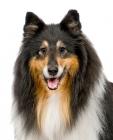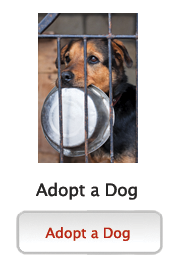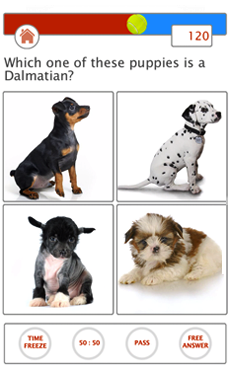Shetland Sheepdog
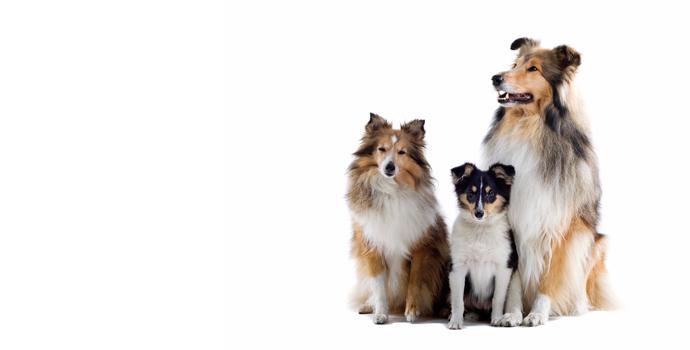
In my own words
Is he back yet? I’m waiting for my master. The rest of my family are safe and cosy in the living room but I’m intensely devoted to my master, he’s worked me since a pup. I’m a working dog you see. I have a tendency to stick with my master. I think this may be because my ancestors: Shelties (that’s what humans call us) have been bred for generations as hardy and solitary herding dogs. We are a very tough and protective kind of canine.
Though I’ve got to admit I’m not the most rambunctious of dogs. Okay, so I bark A LOT but I’m honestly a docile and timid breed. Some humans say I’m a little bit psychic too. Please don’t get the wrong idea. We’re not crazy but Shetlands do have a history of being able to sense human emotions and behaviours with uncanny precision. Are intelligence is often described as human-like! That’s why it’s so important that our minds are occupied. We need work and stimulation!
My ideal owner(s)
Singles
Seniors
Families
Active, sporty types
What they say about me
Sharp as tacks
Loyal companions
Timid
Docile
Love to chase and herd
Please read on, to find out more about me, and whether I will be someone you can be happy with for the next 12 years, or even longer!
Is this Shetland Sheepdog for you?
Test your knowledge about the Shetland Sheepdog
Information essential about the Shetland Sheepdog
Kennel Club Group: Herding
Category:
Size:
Weight: Male & Female 12 - 18 pounds
Height: Male & Female 12 - 15 inches
Popularity:
Popularity: Throughout the years, this breed has become very popular and is said to have almost a human like intelligence
Breed History:
Character:
A sweet disposition, this loveable breed does have a very strong herding instinct often nipping at ankles and chasing cars. This is a home breed and should not be kept in a kennel like environment. The Shetland sheepdog is very affectionate and lovely, yet can be protective of his owner and/or territory. This dog loves being an in-home companion and would gladly lie down on the couch next to his family.
They are high energy, active, very trainable, this breed has a well-rounded and even temperament making him ideal as a household pet. The Shetland sheepdog does well with children, but children should be properly trained to handle a dog of any breed. Used as a watch dog, this gentle breed will not attack without being repeatedly provoked so does not do well for guarding. Great for herding, this dog is still commonly used for herding purposes in a country environment and does exceptionally well.
Temperament:
The Shetland sheepdog is one of the most trainable and loving breeds there is. They are incredibly intelligent and in tune to their owners thoughts and moods. They can be almost psychic when it comes to knowing what you are feeling. If you want to play, your Sheltie is ready to play. If you are sad, your Sheltie will show concern with a worried look and a few kisses. If you are not in the mood, your Sheltie will give you your space. They are also devoted companions and family dogs and are especially fond of children. They will want to be involved in everything you do and go everywhere you go. They will follow you from room to room, including the restroom. They are also protective, especially of "their" children, and will bark a warning whenever someone nears your door. They are sound sensitive and bark at all strange sounds, even the ones you never hear. Barking can be a problem with Shelties, as they seem to have a lot to say. They are very expressive and talk to you with whines, groans, grunts and a thousand different barks. (They can also smile.) Not only will they bark at you, they may also try to herd you. But it's not personal. They will also try at herding children, bicycles, joggers, cars, ducks, and sometimes airplanes. They are usually naturally distrustful of strangers and should be socialized early in life. They are safest in a home with a fenced-in yard. They are peaceful other dogs and animals. A Sheltie needs to be a part of the family. They are an intensely loyal dog and will not do well if left alone.
Conformation:
Shetland sheepdogs have small, sturdy and light frames with rough, long coats (they show a slight resemblance to a miniature version of the longhaired Collie). Their heads have a long, noble shape with tapered muzzles, raised ears and watchful, almond-shaped eyes. Their long hair creates a mane down the sides of the head and neck. They have a double coat—long and rough on the outside, short and dense on the inside. Their bushy tails hang down. Overall, Shetland Sheepdogs have a well-proportioned, symmetrical shape.
Colour:
The Shetland sheepdog comes in lack, blue merle, gold and sable, marked with varying amounts of white and/or tan
Training:
The Sheltie is very easy to train and does very well in obedience and herding given the right methods and trainer. Having a human like intelligence, Shetland sheepdogs are willing to obey, and are very eager to do so. They do very well in working environments being that the herding instinct is still very strong. They tend to bark… a lot but proper training and socialization from an early age can help to alleviate barking.
Care:
Regular brushing is necessary to keep the coat smooth and free of tangles. The long coat of the Sheltie does tend to trap dirt so supervision is necessary unless regular bathing is not a problem. The Shetland sheepdog is a very heavy shedder. You'll find hair all over your home, stuck to everything. The medium-length coat of the Shetland sheepdog only requires an occasional brushing. Due to the fact that he sheds excessively you may find yourself brushing him daily to remove loose hair (What you get out with a brush doesn't fall out in your home).
Apartment/city living may not appeal to Shelties. They need loads of exercise and “tasks” to satisfy their curiosity. This high-energy breed should have regular exercise. Most prefer to allow their Shelties to run free but must be in a fenced in yard, as this breed loves to chase things and will surely bolt if given the opportunity and visual stimulation. An average sized yard would be ideal for this small yet lively breed. With superb herding instincts, excellent quickness and docile natures, Shelties are the perfect farm worker, guard dog or hiking pal.
Health:
Common health issues include allergies, overheating, eye problems and hyperthyroidism. Less common health concerns include canine deafness and epilepsy. A healthy Shetland sheepdog can live as long as 15 years.
You may also like:
If you like Shetland Sheepdogs, you may be interested in breeds of the same size »




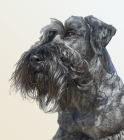
If you like Shetland Sheepdogs, you may like other breeds with similar characteristics »

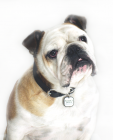
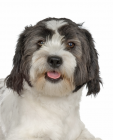


Advice on choosing your breed »
Find an animal shelter or rescue home where a Shetland Sheepdog is waiting for a new home »
The following grid gives a fast track review, which covers all breeds. You can apply it to help you decide if a Shetland sheepdog is suitable for you, the environment where you live, your personality and your lifestyle. On the grid, 1= strongly disagree, and 5= strongly agree. For example, if you are looking for a dog to make a good walking companion, look down the list under ‘Activities’, and you will see that Shetlands have lots of energy and are strong walkers, scoring 5. If you want a dog that is good for country living, look under ‘Environment’ and you will see that Shetlands are suited to country living, scoring 5. You might like to save or print off this section and keep it for reference while you check some other breeds before making your final choice.
Be the first to rate this breed »
|
*PLEASE NOTE: All our breed profiles are general, and all dogs are individuals. Always talk to the breeders and meet the owners you are buying from. Try to meet the dog and its parents if it is a puppy in their home environment.








